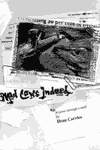Barbara Ehrenreich, �Nickel and Dimed�
Back when I worked at the used bookstore, Eric (the owner) and I would bemoan the poor cultural criticism section, which for the most part was filled with the best books and was probably the most ignored section in the store. Oh sure, there were standards that sold on a regular basis, things like Chomsky or Al Franken or Michael Moore, but most of the time books would simply languish on the shelf. Most used bookstores don�t bother with a cultural criticism section, instead making it an amalgamation with history and political science, and even then, the section would be miniscule and poorly kept.
But it happened to be both of our favorite section, probably where both of us found nearly half of the books we wanted to take home and read for ourselves. And we knew it was an important area as, by definition, cultural criticism dealt with ongoing issues, rather than a fond and quaint look at the past. Thus, when a cult crit book hit the best seller list, such as Eric Schlosser, �Fast Food Nation� or �What's the Matter with Kansas?� by Thomas Frank, we rejoiced, not only because we finally had room on the shelves to fit some of the other books, but because a book that made you think found its way into the national consciousness.
Of course, for anybody that pays even a little attention to world events, most of the topics addressed in these best sellers have a forehead smacking thesis that makes you want to shake your fists in the sky and scream, �Well duh!!!� I mean, really � is anybody really surprised that fast food isn�t very good for you? Or that there�s something the matter with Kansas?
And so Ehrenreich�s book, released in 2001, was another one of those �well, duh� moments. But the book, which has a small release at first, kept selling and suddenly people were learning that it�s difficult to survive while working minimum wage.
I don�t mean to come off as an asshole, but I mean, c�mon — duh!!!. I�m glad Ehrenreich wrote it, and for the most part, she writes well. I�m glad the general populace decided to shell out thirteen bucks for a softcover (that is, if they weren�t smart enough to go find it at a used bookstore) so they could shake their heads and cluck their tongues at the injustice of it all. But there�s a lot that I don�t like about this book. I�ll try to make my points quickly so as to not break my habit of mostly ignoring whatever book I�m talking about, instead talking about me.
The first complaint isn�t the fault of the book or the author, but instead for the buzz surrounding it, because a lot of the people who asked about it were under the impression that this was written by somebody who lived the minimum wage lifestyle, which just isn�t true. This wasn�t some J.K. Rowling rags-to-riches story. Ehrenreich, according to her bio, is the author of twelve books and is a frequent contributor to Harper�s and Time magazine which, to my understanding, pay pretty well. Like John Howard Griffin with his book, �Black Like Me,� the author decided to �play poor� for a while, like a vacation to Shantytown. In addition, like Griffin, she didn�t play the part of pauper all that well and her pauses into poverty took a hiatus when it all got to be too much.
Second, though she states that she would take the highest wage she could find, she aimed low, particularly when she tries the waitress angle. She has a car and access to a shower, yet she seems to only apply at shitty roadside diners and flapjack houses, where the hours will be bad and the tips worse, presumably because these places will have more character than your average overpriced chain restaurant. Also, since she spent only a month with each profession, there isn�t enough time to properly analyze any job. Of course you�re going to start with shitty hours and shittier wages. Since she�s working in jobs that have an enormous turnover rate, the trick is to stay at the job and do it well, which then puts you in a positive light with management, which then gets you better shift and better pay.
Finally, there�s something I find condescending about the entire project, and it comes primarily from two luxuries that she always afforded herself. The first was that she wouldn�t allow herself to be without a car, which she obtained at each location through a rent-a-wreck joint by using a credit card. She admits in her forward that this put her into a higher class than many people who are working wage slave jobs and makes a throwaway statement that she simply thought writing about how she was waiting for the bus wouldn�t seem interesting, though I think it was more that she didn�t want to ride the bus, much less wait for it. But whatever.
It�s the final luxury, which she didn�t outline which skewered her entire book, and that was the insistence that she have her own place. Not that these were luxury places � in fact a good portion of the book deals with poor and dangerous living conditions. But she never seemed to take shared housing or room rentals into consideration. And with that, we can get back to me.
First off, I want to make sure you realize that I�m not playing apologist for the shitty and unfair practices of the capitalist system. I know how hard it can be. It�s coming up on a year since I packed up or sold off all my shit and hopped on a plane to Hawaii, which, as you all can probably guess, isn�t cheap. Ehrenreich says she budgeted her rental costs at four to five hundred a month. When I moved here, I was paying $500 for the privilege of having all my stuff and me in a hallway in a one bedroom studio apartment. I now pay $175 more for my own room with a door in a four bedroom house with three other people.
Geez, when I think back to last August, I really shake my head on how unprepared I was. (I�m going to try to avoid rehashing too heavily, since most of you know all this already. If you don�t, go into the �Older� archives and look for entries after August 15, 2005.) If I were an organized person, I would have realized that I wasn�t qualified for financial aid or work through the campus system and would have reevaluated my situation. Instead, I arrived with no money and soon found myself working four jobs just in order to stay afloat.
Of course, both my parents helped out during this time. But if they hadn�t or couldn�t, I still would�ve got by, it just would�ve been harder than it already was. And yes, if was still making the same amount that I made less than a year ago, I would probably be living in my car, or worse. But the thing is, I worked hard at these jobs and made myself invaluable until I was able to leave the other low-paying employers like the retail job at the mall. In the meantime, my station at the bar turned out to be the winner of the bunch and because of my work ethic, moving me past the point of unfair wage slavery into something much more comfortable.
Not that it�s easy, because I continue to work my ass off. Even on the night that I pretend to be a deejay. Other deejay�s show up five minutes before we open, play music and drink, then pack their iPod or CD case and go home at the end of the night. On the night that I play music I still show up about 45 minutes before we open, set up the bar and the rest of the club, then restock and clean up at the end of the night.
Ehrenreich complains in her book about the unhealthy lifestyle from working too much, along with having to work among a disrespectful or uncaring public. I relate, sister. In fact, allow a little photo essay.




I know, I know, plenty of you are thinking, �Why the hell would you complain about that? It looks rather fun!� And sure, the first night it happened, when all the young, nubile bikini-clad girls strutted in, I was all smiles. But after an hour or so of these morons who only hit three syllables when they did a particularly long-winded �whooooooo!� screech, the novelty wore off. Particularly since the majority of attendees were under 21, and thus only served as an irritant to me behind the bar as they expected favors simply because they were used to having everything handed to them on a silver fucking platter. After three weeks of this I was like those who have to work the lights and cameras in the porn industry � bored out of my mind.
Add to this that the number of people made the place so fucking hot (in term of warmth, not in term of bikini-clad hoebags) that by the end of the night I had sweated so much that it looked like I spent the entire evening under the foam nozzle. Then consider that I had to spend the next two hours cleaning up this mess, to walk into a cold, 4 a.m. breeze, and well, it�s no wonder I�ve my average temperature has hovered around 101 degrees for three weeks straight. People who wash dishes in wage slave environments complain about dishpan hands; I look like I have dishpan feet. In fact, I look like I should move to Molokai to live with the rest of the lepers.
Still though � it�s a living. In fact, by making myself so invaluable at the club, I get to bartend the majority of the time and I�ve done it long and consistently enough to have a loyal clientele, who tip accordingly, seeing how I�m their favorite. That alone allowed me to pay off one of my credit cards, which I�ve struggled to catch up with for the last three years.
Frankly, the fact that I was finally able to do it only because I�m serving alcohol speaks volumes about the problems of the general workplace and society as a whole. I may not be tooling around in a souped-up BMW. But I�m better off than before, and why?
Because I�m dealing drugs.

